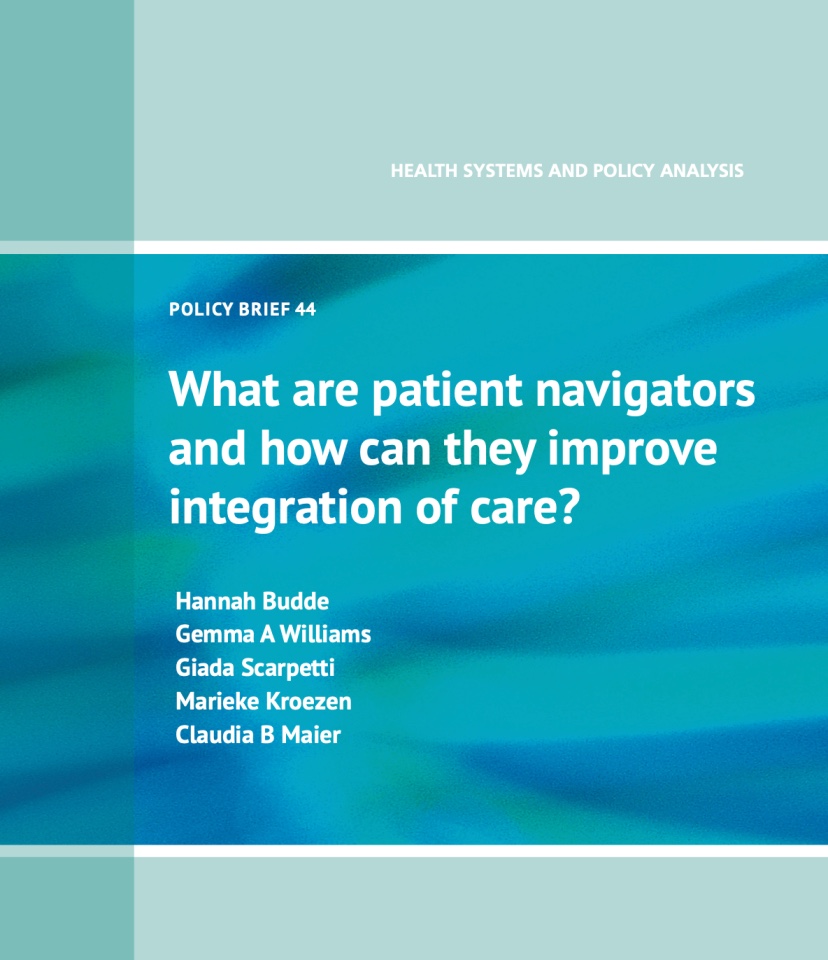This brief’s key messages are:
- The patient navigator role originated in the USA. It is designed to support patients in finding their way through health and social care systems, and to help them overcome barriers to accessing services.
- Although evidence on the effectiveness of patient navigator programmes is limited, available studies indicate that they can contribute to improving access and continuity of care, seemingly offering a promising approach to better integration of care.
- There are a number of patient navigator initiatives in Europe, albeit with varying levels of implementation. Both these and the USA experience offer opportunities for countries to learn from each other.
- Existing patient navigator programmes typically focus on:
- cancer care, where they help patients to move through the entire care continuum, from prevention to survivorship
- transitional care, where they centre on helping (often older) patients to move between various settings (e.g. hospital and home) or sectors (e.g. health and social care)
- care for vulnerable and disadvantaged populations, such as migrants, ethnic minorities, homeless or uninsured persons, where they can facilitate early detection of diseases and access to care.
- Patient navigators are an example of a skill-mix innovation, whereby new tasks or ways of working are implemented. Navigators come from different backgrounds: they can be qualified health professionals, such as nurses or social workers, or trained lay persons, often recruited from the community that is being targeted.
- Key roles of the patient navigators depend on their skills and experience. Typical tasks might include identifying individual needs and barriers to care, educating patients and communities, and linking patients with different care providers. Professional navigators may carry out more advanced (including clinical) tasks.
- Policy-makers interested in introducing patient navigator programmes should consider macro-, meso- and microlevel factors, all of which will influence implementation.
- Key issues to address include: developing appropriate educational standards; securing support from key stakeholders; putting in place long-term funding to ensure the sustainability of patient navigator programmes.
